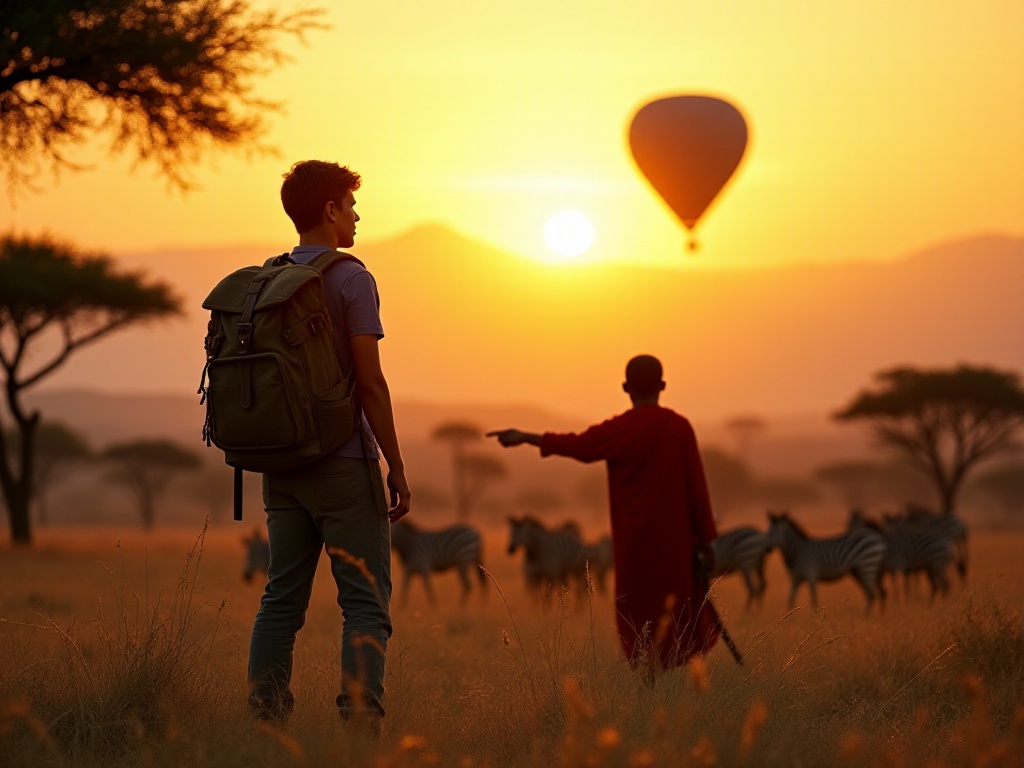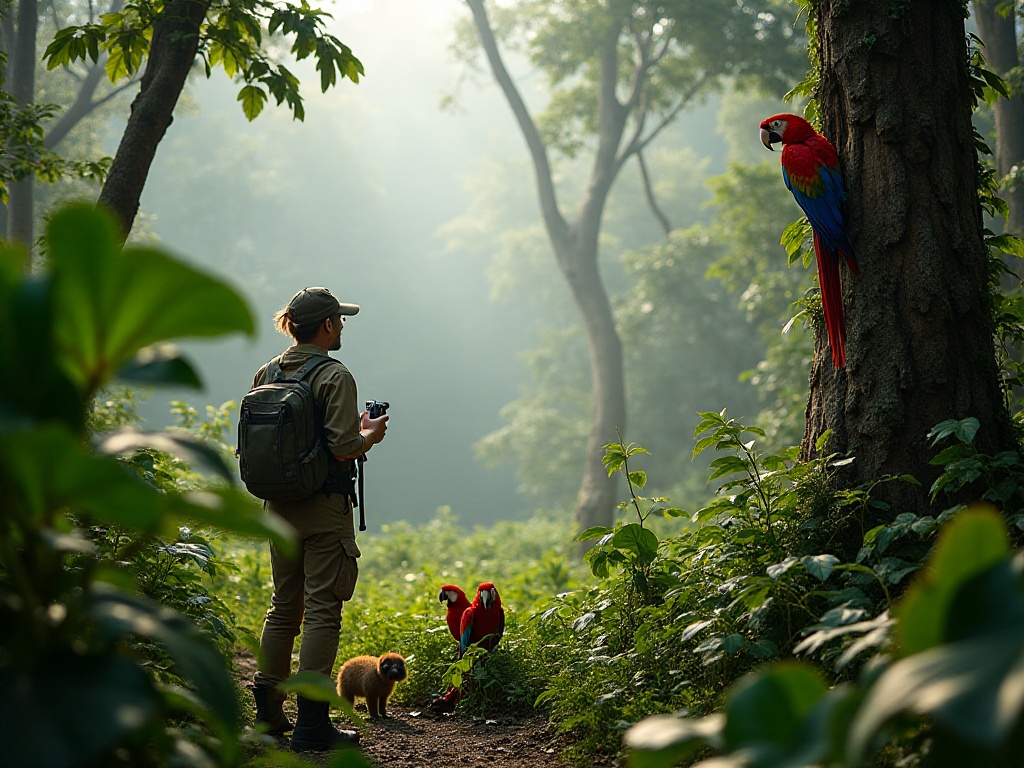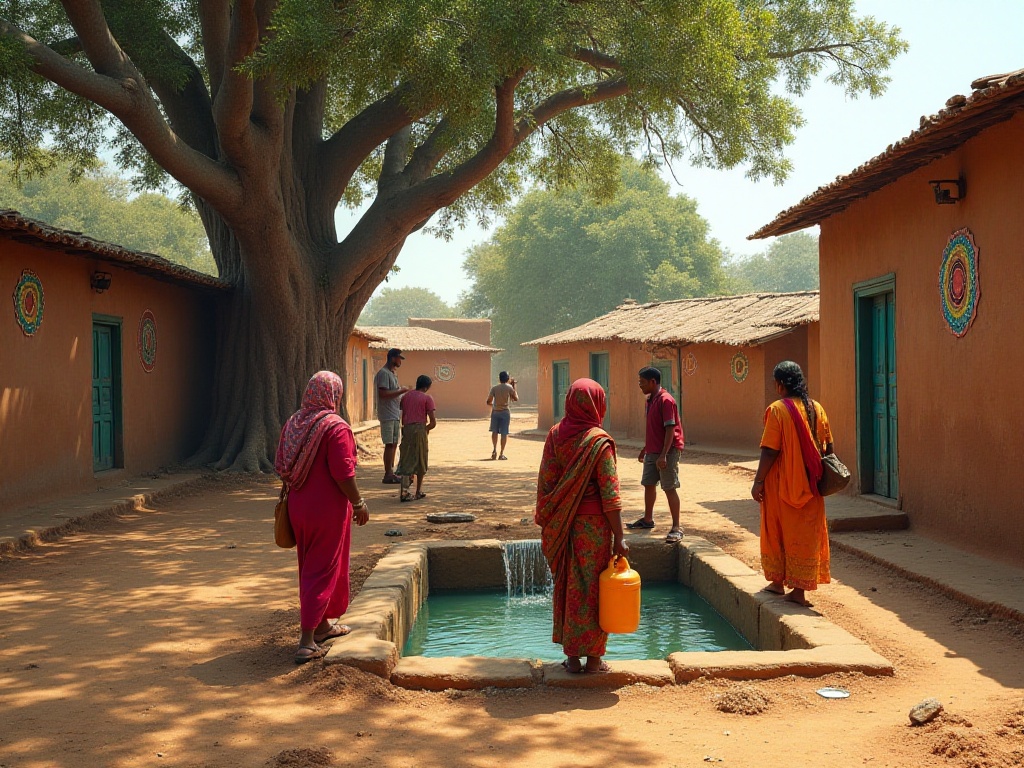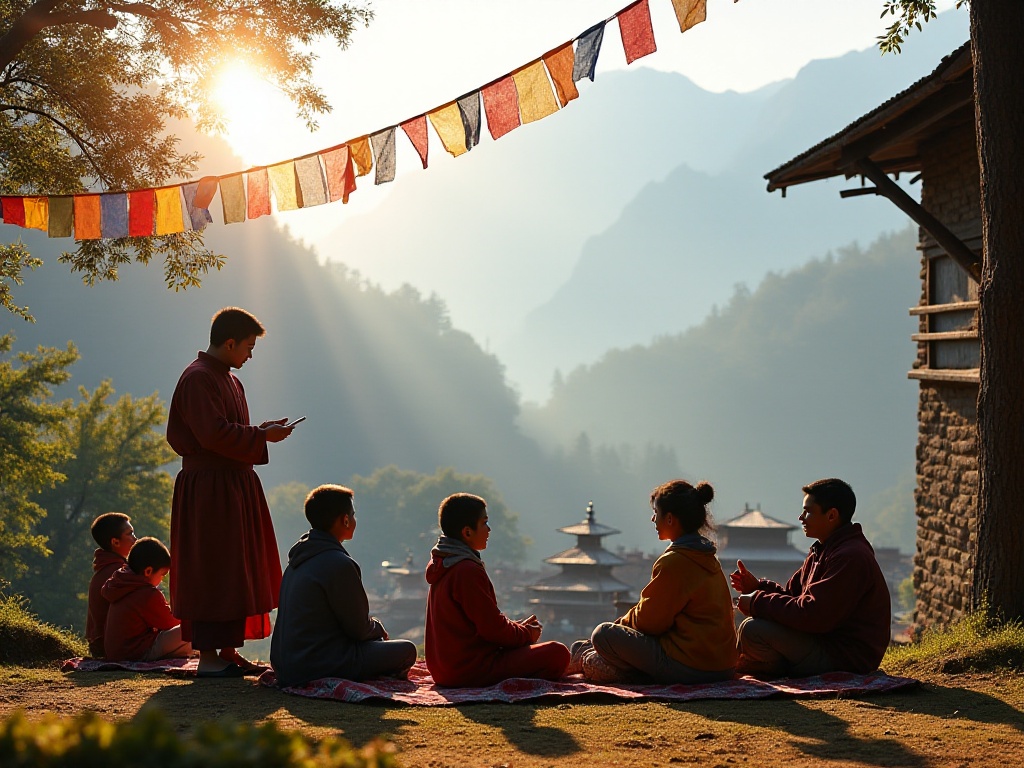This time last year, I was curled up on my tiny rental apartment couch, eating takeout while scrolling through travel vloggers' videos. Like most young people then, my understanding of travel was quite superficial - I thought it was just about visiting popular tourist spots, taking pretty photos for social media, and collecting envious comments and likes.
To be honest, I was already tired of seeing those identical tourist photos, feeling like something was missing. Then one night, while scrolling through short videos, I stumbled upon one about International Volunteer HQ (IVHQ). It featured an Australian girl sharing her experience teaching in Africa. Watching the children's radiant smiles and seeing the sparkle in her eyes as she told her story, I suddenly realized that travel could be something completely different.
As someone relatively new to the workforce, I had to be careful with my spending. Truthfully, IVHQ's pricing first caught my attention. Would you believe it? Just $20 per day covered accommodation and three meals! Considering that even domestic tour groups in China easily cost thousands, let alone international travel.
I immediately opened IVHQ's website and started researching. The more I looked, the more it seemed perfect for me. They had projects in over 50 countries, ranging from education to environmental protection, medical assistance to community development. Most reassuringly, since its establishment in 2007, the organization had served over 140,000 volunteers and maintained excellent ratings across various platforms.
I spent an entire week of after-work hours researching different projects. Finally, I decided to sign up for the English teaching program in Nepal. I chose Nepal partly because it was relatively affordable, but also because I was curious about this mysterious Himalayan nation. As for teaching English, it was simply because, as an English major graduate, it was probably the only skill I could contribute.

When the departure day finally arrived, I'll admit I was nervous standing at Kathmandu airport with my suitcase. After all, it was my first solo international trip to a completely unfamiliar place. But the moment I met the pickup staff and my host family, all my anxiety vanished.
My host family was a middle-aged couple. Although their English wasn't great, we managed to communicate using body language and simple words. On my first night, they prepared a special dinner. My host mother, wearing a traditional sari, watched me eat with a warm smile, constantly adding food to my plate. At that moment, I felt like their daughter rather than a foreign volunteer.
Every morning at seven, I had to get ready for school. Honestly, as someone who usually loves sleeping in, this was really tough at first. But seeing those little ones' innocent smiles made all my drowsiness disappear. They would wait for me at the school gate, waving from afar: "Good morning, teacher!"
Time always flew by in the classroom. I taught them not just English words and grammar, but often used games and activities to help them fall in love with learning English. When we played "Simon Says," the classroom would fill with laughter. I also frequently told them stories about China - they were especially interested in kung fu and pandas.
The most touching moment was with a particularly shy boy who never dared to speak English at first. After two weeks of encouragement and guidance, one day after class, he suddenly said to me in English: "Thank you, teacher. I love you." I nearly cried at that moment. This kind of fulfillment is something you can't find in any five-star hotel or popular tourist spot.

Living with a host family was definitely one of the highlights of this volunteer journey. Through daily interactions with locals, I truly experienced the Nepalese way of life.
Every morning, I would go to the local market with my host mother. The market was always bustling with the sound of haggling. Stalls were filled with spices I couldn't name, colorful fabrics fluttered in the wind, and street vendors enthusiastically sold their homemade snacks to passersby. There was no tourist commercialization here, just authentic local life.
In the evenings, I loved sunbathing on the roof with my host family. My host father would sip Nepalese milk tea while telling me about their traditions and beliefs. From their stories, I learned many things you won't find in tourist guides. For instance, they told me that Nepalese people believe the Himalayas are the dwelling place of gods, so they pray facing the mountains every morning.
On weekends, I was fortunate to participate in some of their religious festivals. One time during Tihar (Nepalese New Year), the whole community gathered to celebrate. Every household lit oil lamps and drew beautiful mandala patterns on the ground. Children ran through the streets in new clothes while adults prepared traditional foods. That festive atmosphere and human warmth is something you can't experience on any tourist tour.

A month isn't particularly long or short, but this experience brought me many unexpected rewards.
First was teaching experience. Although I majored in English, I had never taught formally before. This month of classroom practice taught me how to design lessons, motivate students, and handle various classroom situations. These were all invaluable experiences.
Second was cultural understanding. Through deep interaction with locals, I gained a deeper understanding of Nepalese culture. For example, although the caste system has been legally abolished, it still influences daily life. Also, despite not being materially wealthy, they are generally content and optimistic. These observations gave me new perspectives on life.
Most importantly, this experience completely changed my understanding of travel. I used to think travel was just about consuming a place - taking photos, checking off sites, shopping. But now I understand that meaningful travel should be reciprocal. You shouldn't just take from a place, but also leave something behind.

If you're interested in volunteer travel, there are many reliable organizations besides IVHQ. Projects Abroad is another good choice, particularly known for designing projects based on volunteers' age and experience. Whether you're a high school graduate wanting to experience life or a college student looking to enrich your gap year, you can find suitable projects.
When choosing an organization, thorough research is essential. You can search for reviews and experiences on platforms like Zhihu and Xiaohongshu. You can also directly contact previous volunteers to ask about their experiences. Good organizations are usually happy to provide contact information for their past volunteers.

Volunteer projects come in many varieties, and you can choose based on your interests and expertise.
Sports enthusiasts might teach football in Brazilian favelas. There, football isn't just a sport but an effective tool to keep youth away from violence and drugs. Through football, you can teach children about teamwork, discipline, and perseverance.
Those interested in nature and environmental protection might choose to work in the Amazon rainforest. You might participate in wildlife surveys or help local communities develop sustainable agriculture. Though working conditions might be challenging, the satisfaction of contributing to environmental protection is incomparable.
If you're a diving enthusiast, that's even better. Many projects focus on protecting endangered coral reefs. Under professional guidance, you can participate in coral planting and maintenance. Imagine contributing to marine conservation under blue skies and clear waters - what an amazing experience!
There are also unique projects like wildlife conservation in Africa, teaching music and art in South America, or assisting with community development in Southeast Asia. With careful searching, you'll find a project that suits you.

While volunteer travel sounds wonderful, there are important factors to consider when choosing a project.
First, choose legitimate and reliable organizations. Organizations like IVHQ, with years of operation and good reputations, are more trustworthy. They usually have comprehensive volunteer support systems, including accommodation arrangements, security measures, and emergency medical care. Additionally, legitimate organizations are transparent about their project fees, without hidden charges.
Second, choose projects matching your abilities and interests. Though I wanted to participate in wildlife protection, I chose teaching English as it better matched my background. Choosing suitable projects allows you to make real contributions while enjoying yourself.
Third, research local customs and culture beforehand. Each place has unique cultural traditions and taboos, and prior knowledge helps avoid awkward situations. For example, in Nepal, using your left hand to eat or pass things is considered impolite. In Muslim countries, conservative dress is important. Do your homework on these cultural aspects.
Finally, be mentally prepared. Volunteer travel isn't a vacation and may present various challenges like language barriers, adjusting to local conditions, and culture shock. But these challenges make the experience more meaningful.

Looking back, that Nepal trip was truly a turning point in my travel life. It taught me that travel's meaning isn't about how many places you visit or photos you take, but what you leave behind and take away from each place.
Those children's innocent smiles, warm moments with the host family, and like-minded friends met abroad have become my most precious memories. More importantly, this experience gave me new insights and perspectives on life.
I'm already planning my next volunteer trip. This time, I want to teach computer skills to children in Africa. The journey might be longer and more challenging, but I know this kind of travel is most meaningful.
If you're interested in volunteer travel, don't hesitate to try it. Trust me, it will be an unforgettable life experience. I look forward to perhaps meeting you somewhere, in some project.
Have you tried this type of travel? Or do you have questions about volunteer travel? Feel free to share your thoughts and experiences in the comments. Let's discuss and grow together.
 Previous
Previous
